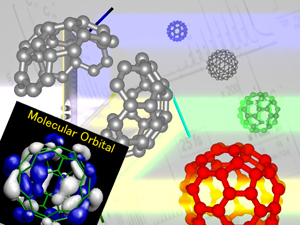
Photos:
All programs were successfully done. Thank you very much.
Important dates:
- Registration Deadline:
- January 15, 2006 :
- Early Registration (1) Registration Fee* > 35,000 yen
- March 20, 2006 :
- Early Registration (2) Registration Fee* > 40,000 yen
- April 15, 2006 :
- Registration (Final) Registration Fee* > 45,000 yen
- * Registration Fee including 3 nights accommodation with meals and Banquet
- >> See more information
- Early Registration (1) Registration Fee* > 35,000 yen
- Abstract Submission Deadline:
- March 20
- >> See more information
- Reception:
- May 16 : 18:30-21:30
- Academic Session:
- May 17-18 and May 19 (Morning)
- Excursion:
- May 18 : 14:00-16:00
- Banquet:
- May 18 18:30-21:30
Purpose:
 The main purpose of the symposium is to bring together researchers
working on theoretical or experimental investigations of electron
dynamics and related phenomena and to stimulate mutually beneficial
discussions. Ample applications of state-of-the-art ab initio quantum
chemistry methods to spectroscopic studies of polyatomic molecules are
presented. In addition, the symposium features the recent progresses of
time-dependent density functional theory (TDDFT) and other theoretical
methods for studying both electronic and reaction dynamics. Their
applications to ultrafast phenomena down to the attosecond regime will
be demonstrated by visualization of the temporal and spatial propagation
of the electronic and nuclear wave packets of molecules. The results of
various advanced experiments such as electron spectroscopy are also
presented along with theoretical analyses based on electronic structure
calculations. The scientific topics touched upon in this symposium cover
a wide range of research areas: electron-molecule collisions, electron
detachment and attachment processes, the properties of solvated
electrons, excited-state molecular dynamics, core excitations, Penning
ionization, chemical reactions and ionization processes of atoms and
molecules in intense laser fields, and so on.
The main purpose of the symposium is to bring together researchers
working on theoretical or experimental investigations of electron
dynamics and related phenomena and to stimulate mutually beneficial
discussions. Ample applications of state-of-the-art ab initio quantum
chemistry methods to spectroscopic studies of polyatomic molecules are
presented. In addition, the symposium features the recent progresses of
time-dependent density functional theory (TDDFT) and other theoretical
methods for studying both electronic and reaction dynamics. Their
applications to ultrafast phenomena down to the attosecond regime will
be demonstrated by visualization of the temporal and spatial propagation
of the electronic and nuclear wave packets of molecules. The results of
various advanced experiments such as electron spectroscopy are also
presented along with theoretical analyses based on electronic structure
calculations. The scientific topics touched upon in this symposium cover
a wide range of research areas: electron-molecule collisions, electron
detachment and attachment processes, the properties of solvated
electrons, excited-state molecular dynamics, core excitations, Penning
ionization, chemical reactions and ionization processes of atoms and
molecules in intense laser fields, and so on.
Language:
Lectures and formal discussions will be conducted in English.
Type of presentations & facilities:
Invited talks, short oral presentations (15 min including discussion), and poster sessions. Since the slots for short oral presentation are limited, Organizing Committee shall determine the final allocation, whether oral or poster. PC projectors (beamers) are available for oral presentation (no overhead projectors). Poster size should be maximum 90 cm wide and 180 cm high. Materials for attaching posters to the boards will be provided at the symposium site.
Invited Speakers:
(in alphabetic order)
- Dr. Leticia González (Berlin Free University, Germany)
- On multiphoton pump-probe spectroscopy for polyatomic molecules
- Dr. E.K.U. Gross (Berlin Free University, Germany)
- Optimal control theory and time-dependent density-functional theory: Aspects of a difficult marriage
- Dr. Yoshiyuki Kawazoe (Tohoku University, Japan)
- Origins of Hund's multiplicity rule and molecular stability by diffusion quantum Monte Carlo method
- Dr. Hirohiko Kono (Tohoku University, Japan)
- Dynamics of molecules in intense laser fields
- Dr. Sheng H. Lin (Institute for Atomic and Molecular Sciences, Academia Sinica, Taiwan)
- Ultrafast electron in photosynthesis and organic solar cells
- Dr. Robert Lucchese (Texas A&M University, USA)
- The effects of resonances on molecular frame photoelectron angular distributions and vibrational branching ratios
- Dr. Klaus Müller-Dethlefs (Manchester University, UK)
- A new molecular orbital concept derived from ZEKE spectroscopy with rotational resolution
- Dr. Joseph Vincent Ortiz (Kansas State University, USA)
- Electron propagator interpretations of chemical bonding: from nucleotides to double Rydbergs
- Dr. Andrzej L. Sobolewski (Institute of Physics, Polish Academy of Sciences, Poland)
- Theoretical Investigations on the Excited-State > Deactivation Mechanisms of Organic Photostabilizers
- Dr. Dage Sundholm (University of Helsinki, Finland)
- Ab initio and density-functional theory studies of optical and magnetical properties of nanosized systems
- Dr. Erich Weigold (Australian Research Council, Australia)
- Electron Momentum Spectroscopy - a powerful means for investigating the electronic structure of matter
Programs:
tentative- Program (doc: 40kB, update: Apr 25)

- Poster session (doc: 64kB, update: Apr 11)
Poster:
- Poster (ppt : 2.4 MB)

[Home]